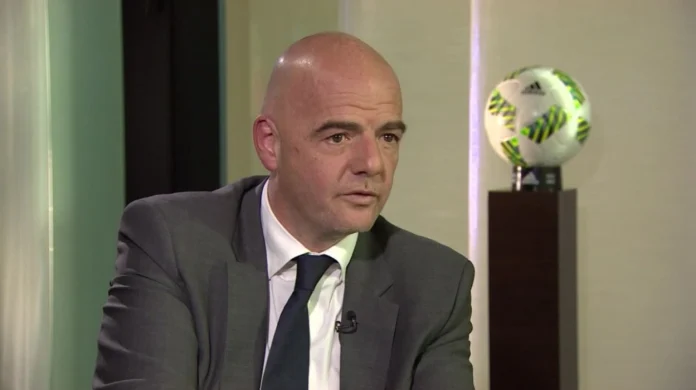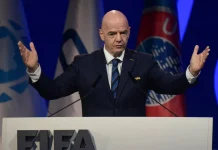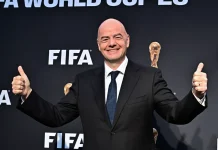FIFA’s governance credibility remains tarnished by the legacy of the 2015 FIFAGate scandal. Triggered by U.S. arrests of top officials in Zurich, the case exposed decades of bribery and fraud, deeply embedding mistrust within the organization and raising ongoing concerns about transparency, accountability, and leadership within global football administration.
The exposures also involved senior managers in taking in over 150 million dollars of illegal payments relating to media rights and the hosting of events. The scandal has resulted in the resignation of the then president Sepp Blatter and revealed a longstanding culture of secrecy and favoritism.
Although this resulted in an outcry of unethical conduct on the international front with calls demanding change and legal reparation, the organizations declared inertness to the FIFA organization has remained defiant to the long-term transformation. In this context, questions of whether any reform has been undertaken are long gone, and the question now occupying the center stage is whether reform has been serious enough and legitimate enough to win back the confidence of the people and the stakeholders.
Governance reforms: structural changes and their limitations
In response to the crisis, FIFA has made some reforms in the governance structure designed to bring about greater transparency and internal controls. These were the term limit of half the presidential term, the enlargement of the FIFA council and the proposal of the FIFA foundation with a promise that it will commit to reinvest over $200 million in development projects by 2025. The organization’s reforms earned it modest improvements in international governance ratings, with external sports federations acknowledging partial progress.
Although much has been done, there are still major limitations. There is a lack of true operational independence of the Ethics Committee which is the central part of the accountability framework of FIFA. It is limited by a lack of resources and accusations of political bias. Cases against powerful bureaucrats are often overrun or disregarded, whereas the lesser offenses get serious justice which implies discriminatory justice over impartial regulation.
Transparency gaps in enforcement
Even the existing investigative mechanism of FIFA does not yield transparency. Reports on disciplinary rulings are frequently constrained in amount and whistleblower protections continue to be inadequate. Such weaknesses create a distrust over the capacity of the organization to police itself especially in cases involving technical financial wrongdoing or those involving abuses that involve leaders.
Analysts have described the gap between what is achieved publicly on the one hand in terms of rhetoric on reforms and the contradictory trends adopted internally to practice as a key hindrance in terms of building trust. This is worsened by the fact the lack of a strong external oversight, by implications allowing the reform course that FIFA follows largely remains self-induced and thus in the sphere of internal political contestations.
Leadership under Gianni Infantino: promises and controversies
In 2016, Gianni Infantino was voted as the head of FIFA and welcomed by many as a new start of the stormy history of FIFA. He also initiated a policy that the funding would be divided so as to give the member associations $5 million after every four years. While this expanded the global reach of FIFA’s development programs, critics note that Infantino’s emphasis on financial redistribution often overshadowed the deeper need for governance reform.
Throughout his tenure, Infantino has faced mounting criticism for maintaining opaque relations with judicial authorities and for his role in undermining the autonomy of FIFA’s ethics bodies. The Swiss prosecutors and his secret meetings with them and other efforts made to reconstitute the Ethics Committee raise questions about a conflict of interest, just like what had occurred with previous governance issues leading up to the 2015 crisis.
Erosion of ethical oversight credibility
In the management of the Ethics Committee, under the leadership of Infantino, it has been observed to have a diluted independence. High-profile ethics cases have been delayed and critics say that it can no longer act as an impartial guard. There are claims of vindictive purges and politically compromised recruitments that have fuelled its lack of legitimacy.
Such a governance environment has seen reduced trust among global stakeholders. A number of sponsors, including long-time FIFA partners, have shown concerns relating to the credibility of the governance of the organization. Global brands are increasingly wary and are focusing more of their attention on reputational risk management at a time of increased demands placed on brands to be accountable.
The persistent crisis of accountability and transparency
Persisting lack of transparency continues to scare away a wide spectrum of stakeholders. The regularities and accuracy of the administration decisions by FIFA have come under criticism by sponsors, federations and athletes. Companies like Coca-Cola and Visa have gone ahead to call on FIFA to swiftly implement ethical reforms indicating that they will only continue to support the organization when there are proven and observable positive changes in terms of governance.
This is further perceived as having diminished the input of smaller national federations in decision making processes within FIFA reinforcing perceptions of inequity within the power structure of FIFA. Such apprehensions have led to arguments on how the control of the right to vote should be distributed and how the development allocations should be carried out fairly with each area having its say.
Comparative decline in governance benchmarks
In 2025, external oversight agencies have already posted evaluations that indicate that the present system established by FIFA is deficient in striking comparisons to other world sport governing agencies. Though improvements have been achieved since 2015, analysts claim that FIFA has stagnated on its path to improvement. With no external control, the organization is subjected to slip back to the culture of insularity that caused the original scandal.
Calls to structural recalibration are getting louder with each consecutive year. Critics recommend that investigative reports should be publicized on a mandatory basis as well as ensure that there is increased stakeholder involvement in the ethics. The purpose of these recommendations is then to fill the gap between the procedure fix and the culture.
Toward independent oversight: possibilities and challenges
The establishment of a separate ethics oversight institution is one of the most popular suggestions about restoring the confidence in FIFA. This institution would not be under the administrative structure of FIFA and this would allow it to begin investigations free from outside pressure or internal repercussions. It would be mandated to subpoena and openly report, and consult with the stakeholders.
Nevertheless, such a body is difficult to put into practice due to political and logistical difficulties. Opposition by key FIFA leaders, who view international supervision as one that undermines their power, is a great obstacle. In addition, the pressure of member associations and sponsors is also low, which hardly motivates FIFA leaders to give up control.
Building trust through sustained transparency
The experts point out that trust concerning the governance institutions is subjective to enforcement of the same being seen and, at the same time, consistent. At FIFA, not only should the investigative independence be enhanced, but also a proactive manner of dealing with conflicts-of-interest disclosure, whistleblowing and stakeholder relations should be assumed.
The challenge of handling FIFA is that it is both a revenue generating and a responsible body as a public trust involved in the management of the global game. The combination of these two mandates makes it necessary to implement the changes, where the issue of ethics is ingrained into every single process of its activity, such as financial activities, bidding on tournaments.
A complex legacy with unfinished business
The Fordism-Fordism-Fordism cycle at FIFA is the story of how hard it is to tear up the ancient organization of power in an international sports organization. The scandal in 2015 has since prompted concrete action by the organization but it is still not at a point of ethical vigor and accountability that would ensure that it has gained back the lost trust. With the administration of Gianni Infantino, the focus has been on financial and global expansion at the detriment of more substantive governance reforms.
But as the focus shifts to the 2026 World Cup and FIFA meeting the demands of new emerging markets, the eyes will only be more on its inner governance mechanisms. The institution has to make a choice of institutionalizing ethical reform or to risk yet another episode of crisis. When a sport enjoys the attention of fans around the planet and fuel the world economy, the price of doing nothing can easily outweigh the danger of doing something drastic.
The future of FIFA’s integrity will be determined not by press releases or strategic plans but by the credibility of its enforcement mechanisms and the transparency of its leadership. The future of football governance will be determined by whether FIFA manifests by example or a symbolic institution that still needs a lot of practice ahead.











